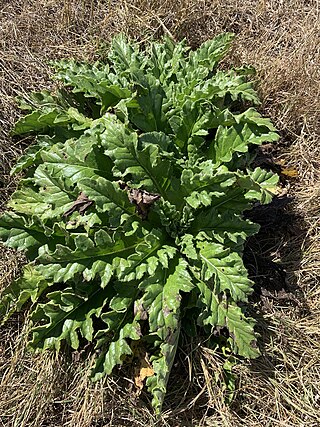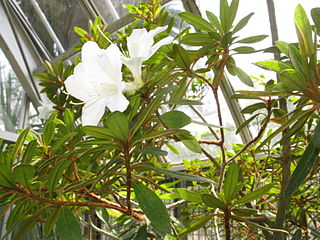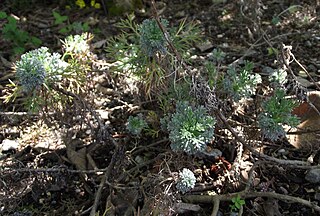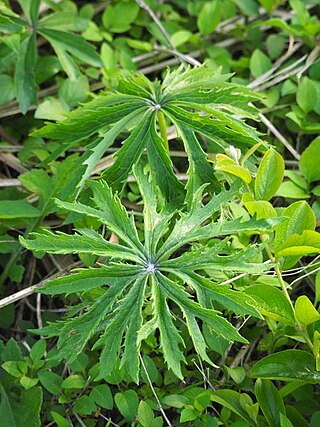International

International Union for Conservation of Nature
- European Red List [3]
This list is of Red Lists, Red Data Books, and related initiatives that assess and document the extinction risk of species, whether on an international or more local level (regional Red Lists). The IUCN has published a set of Guidelines for Application of the IUCN Red List Criteria at Regional and National Levels and at least 113 countries have produced their own Red Lists. [1] [2] Below, where a particular article or set of articles on a foreign-language Wikipedia provides fuller coverage, a link is provided.

International Union for Conservation of Nature
![]() Angola: Lista Vermelha de Espécies de Angola, published by the Ministério do Ambiente
Angola: Lista Vermelha de Espécies de Angola, published by the Ministério do Ambiente
![]() Armenia: ԿԱՐՄԻՐ ԳԻՐՔ, published by the Ministry of Environment; [4] Armenian : Հայաստանի Կարմիր գիրք
Armenia: ԿԱՐՄԻՐ ԳԻՐՔ, published by the Ministry of Environment; [4] Armenian : Հայաստանի Կարմիր գիրք
![]() Australia: Species Profile and Threats Database, published by the Department of Agriculture, Water and the Environment [5]
Australia: Species Profile and Threats Database, published by the Department of Agriculture, Water and the Environment [5]
![]() Brazil: Livro Vermelho da Fauna Brasileira Ameaçada de Extinção, published by the Chico Mendes Institute for Biodiversity Conservation
Brazil: Livro Vermelho da Fauna Brasileira Ameaçada de Extinção, published by the Chico Mendes Institute for Biodiversity Conservation
![]() Bulgaria: Червена книга на Република България (Red Data Book of the Republic of Bulgaria), published by the Bulgarian Academy of Sciences and Ministry of Environment and Water; [6] Bulgarian : Червена книга на Република България
Bulgaria: Червена книга на Република България (Red Data Book of the Republic of Bulgaria), published by the Bulgarian Academy of Sciences and Ministry of Environment and Water; [6] Bulgarian : Червена книга на Република България
![]() Canada: Species at risk public registry, published by the Government of Canada [7]
Canada: Species at risk public registry, published by the Government of Canada [7]
![]() China: 中国生物多样性红色名录, published by the Ministry of Ecology and Environment: 脊椎动物卷 (vertebrates) [8] 高等植物卷 (higher plants); [9] [10] 中国生物多样性红色名录 脊椎动物 第一卷 哺乳动物 (Mammals); cf. Chinese : 国家重点保护野生动物名录, 国家重点保护野生植物名录
China: 中国生物多样性红色名录, published by the Ministry of Ecology and Environment: 脊椎动物卷 (vertebrates) [8] 高等植物卷 (higher plants); [9] [10] 中国生物多样性红色名录 脊椎动物 第一卷 哺乳动物 (Mammals); cf. Chinese : 国家重点保护野生动物名录, 国家重点保护野生植物名录
![]() Colombia: Libros Rojos, published by the Ministry of Environment and Sustainable Development [11]
Colombia: Libros Rojos, published by the Ministry of Environment and Sustainable Development [11]
![]() Czech: Červené seznamy, published by the Nature Conservation Agency of the Czech Republic ; [12] Czech : Stupeň ohrožení v Česku
Czech: Červené seznamy, published by the Nature Conservation Agency of the Czech Republic ; [12] Czech : Stupeň ohrožení v Česku
![]() Denmark: Den danske Rødliste, published by Aarhus University; [13] Danish : Den danske rødliste
Denmark: Den danske Rødliste, published by Aarhus University; [13] Danish : Den danske rødliste
![]() Finland: Suomen lajien uhanalaisuus – Punainen kirja, jointly published by the Ministry of the Environment; Web Service of the Red List of Finnish Species, published on the Finnish Biodiversity Information Facility [14]
Finland: Suomen lajien uhanalaisuus – Punainen kirja, jointly published by the Ministry of the Environment; Web Service of the Red List of Finnish Species, published on the Finnish Biodiversity Information Facility [14]
![]() France: La Liste rouge des espèces menacées en France; Inventaire national du patrimoine naturel , published by the National Museum of Natural History [15]
France: La Liste rouge des espèces menacées en France; Inventaire national du patrimoine naturel , published by the National Museum of Natural History [15]
![]() Germany: German : Rote Liste gefährdeter Tiere, Pflanzen und Pilze Deutschlands
Germany: German : Rote Liste gefährdeter Tiere, Pflanzen und Pilze Deutschlands
![]() Greece: Το Κόκκινο Βιβλίο των Απειλούμενων Ζώων της Ελλάδας, published by the Hellenic Zoological Society; [16] Greek : Κόκκινο Βιβλίο των Απειλούμενων Σπονδυλόζωων της Ελλάδας
Greece: Το Κόκκινο Βιβλίο των Απειλούμενων Ζώων της Ελλάδας, published by the Hellenic Zoological Society; [16] Greek : Κόκκινο Βιβλίο των Απειλούμενων Σπονδυλόζωων της Ελλάδας
![]() Iceland: Válistar published by the Icelandic Institute of Natural History ; [17] Icelandic : Válisti
Iceland: Válistar published by the Icelandic Institute of Natural History ; [17] Icelandic : Válisti
![]() Italy: Liste Rosse Nazionali, published by the Ministry of the Ecological Transition [18]
Italy: Liste Rosse Nazionali, published by the Ministry of the Ecological Transition [18]
![]() Kyrgyzstan: Кыргыз Республикасынын Кызыл китеби; Russian : Красная книга Киргизской Республики
Kyrgyzstan: Кыргыз Республикасынын Кызыл китеби; Russian : Красная книга Киргизской Республики
![]() Moldova: Cartea roșie a Republicii Moldova, published by the Academy of Sciences of Moldova and Ministry of Environment; Romanian : Cartea Roșie a Republicii Moldova
Moldova: Cartea roșie a Republicii Moldova, published by the Academy of Sciences of Moldova and Ministry of Environment; Romanian : Cartea Roșie a Republicii Moldova
![]() New Zealand: New Zealand Threat Classification System, published by the Department of Conservation [19]
New Zealand: New Zealand Threat Classification System, published by the Department of Conservation [19]
![]() Nicaragua: Lista Roja, Especies en Alto Riesgo
Nicaragua: Lista Roja, Especies en Alto Riesgo
![]() Norway: Norsk rødliste for arter, published by Artsdatabanken; Norwegian : Norsk rødliste for arter [20]
Norway: Norsk rødliste for arter, published by Artsdatabanken; Norwegian : Norsk rødliste for arter [20]
![]() Philippines: National List of Threatened Fauna, maintained by the Department of Environment and Natural Resources [21]
Philippines: National List of Threatened Fauna, maintained by the Department of Environment and Natural Resources [21]
![]() Poland: Polska Czerwona Księga Zwierząt; Polska Czerwona Księga Roślin; Polish : Polska czerwona księga zwierząt, Polska czerwona księga roślin
Poland: Polska Czerwona Księga Zwierząt; Polska Czerwona Księga Roślin; Polish : Polska czerwona księga zwierząt, Polska czerwona księga roślin
![]() Russia: Red Data Book of the Russian Federation; [22] also by Federal subject — Sakhalin Oblast: Красная Книга Сахалинской области: Животные / Растения и грибы; Category:Красные книги по субъектам Российской Федерации
Russia: Red Data Book of the Russian Federation; [22] also by Federal subject — Sakhalin Oblast: Красная Книга Сахалинской области: Животные / Растения и грибы; Category:Красные книги по субъектам Российской Федерации
![]() South Africa: Red List of South African Plants, published by the South African National Biodiversity Institute.
South Africa: Red List of South African Plants, published by the South African National Biodiversity Institute.
![]() South Korea: 한국의 멸종위기 야생동·식물 적색자료집, published by the Ministry of Environment and National Institute of Biological Resources (Red Data Book 1 = Birds 조류, 2 = Amphibians and Reptiles 양서류·파충류, 3 = Fish 어류, 4 = Mammals 포유동물, 5 = Vascular Plants 관속식물); Korean : 대한민국의 멸종위기 야생 동·식물
South Korea: 한국의 멸종위기 야생동·식물 적색자료집, published by the Ministry of Environment and National Institute of Biological Resources (Red Data Book 1 = Birds 조류, 2 = Amphibians and Reptiles 양서류·파충류, 3 = Fish 어류, 4 = Mammals 포유동물, 5 = Vascular Plants 관속식물); Korean : 대한민국의 멸종위기 야생 동·식물
![]() Spain: Libro rojo de los vertebrados de España, Atlas y libro rojo de la flora vascular amenazada de España, published by the Ministry of Environment
Spain: Libro rojo de los vertebrados de España, Atlas y libro rojo de la flora vascular amenazada de España, published by the Ministry of Environment
![]() Sri Lanka: The National Red List 2012 of Sri Lanka, published by the Ministry of Environment [23]
Sri Lanka: The National Red List 2012 of Sri Lanka, published by the Ministry of Environment [23]
![]() Sweden: Rödlistade arter i Sverige, published by the Swedish University of Agricultural Sciences (SLU Artdatabanken) [24] Swedish : Rödlistade arter i Sverige
Sweden: Rödlistade arter i Sverige, published by the Swedish University of Agricultural Sciences (SLU Artdatabanken) [24] Swedish : Rödlistade arter i Sverige
![]() Switzerland: Rote Listen: Gefährdete Arten der Schweiz, published by the Federal Office for the Environment; [25] cf. German : Blaue Liste der erfolgreich erhaltenen oder geförderten Tier- und Pflanzenarten
Switzerland: Rote Listen: Gefährdete Arten der Schweiz, published by the Federal Office for the Environment; [25] cf. German : Blaue Liste der erfolgreich erhaltenen oder geförderten Tier- und Pflanzenarten
![]() Taiwan: 紅皮書名錄, published by the Endemic Species Research Institute and Forestry Bureau; [26] (Red List 1 = birds 臺灣鳥類紅皮書名錄, 2 = terrestrial reptiles 臺灣陸域爬行類紅皮書名錄, 3 = amphibians 臺灣兩棲類紅皮書名錄, 4 = freshwater fishes 臺灣淡水魚類紅皮書名錄, 5 = terrestrial mammals 臺灣陸域哺乳類紅皮書名錄, 6 = vascular plants 臺灣維管束植物紅皮書名錄)
Taiwan: 紅皮書名錄, published by the Endemic Species Research Institute and Forestry Bureau; [26] (Red List 1 = birds 臺灣鳥類紅皮書名錄, 2 = terrestrial reptiles 臺灣陸域爬行類紅皮書名錄, 3 = amphibians 臺灣兩棲類紅皮書名錄, 4 = freshwater fishes 臺灣淡水魚類紅皮書名錄, 5 = terrestrial mammals 臺灣陸域哺乳類紅皮書名錄, 6 = vascular plants 臺灣維管束植物紅皮書名錄)
![]() Turkmenistan: Türkmenistanyň Gyzyl Kitaby, published by the Ministry of Nature Protection; [27] Russian : Красная книга Туркменистана
Turkmenistan: Türkmenistanyň Gyzyl Kitaby, published by the Ministry of Nature Protection; [27] Russian : Красная книга Туркменистана
![]() United Kingdom: Conservation designations for UK taxa, published by the JNCC [28]
United Kingdom: Conservation designations for UK taxa, published by the JNCC [28]
![]() USA: Federal Lists of Endangered and Threatened Wildlife and Plants, published by the United States Fish and Wildlife Service [29]
USA: Federal Lists of Endangered and Threatened Wildlife and Plants, published by the United States Fish and Wildlife Service [29]
![]() Uzbekistan: O'zbekiston Respublikasining Qizil kitobi; Russian : Красная книга Узбекистана
Uzbekistan: O'zbekiston Respublikasining Qizil kitobi; Russian : Красная книга Узбекистана
![]() Vietnam: Vietnam's Red Data Book
Vietnam: Vietnam's Red Data Book
A threatened species is any species which is vulnerable to extinction in the near future. Species that are threatened are sometimes characterised by the population dynamics measure of critical depensation, a mathematical measure of biomass related to population growth rate. This quantitative metric is one method of evaluating the degree of endangerment without direct reference to human activity.
The conservation status of a group of organisms indicates whether the group still exists and how likely the group is to become extinct in the near future. Many factors are taken into account when assessing conservation status: not simply the number of individuals remaining, but the overall increase or decrease in the population over time, breeding success rates, and known threats. Various systems of conservation status are in use at international, multi-country, national and local levels, as well as for consumer use such as sustainable seafood advisory lists and certification. The two international systems are by the International Union for Conservation of Nature (IUCN) and The Convention on International Trade in Endangered Species of Wild Fauna and Flora (CITES).

The Japanese murrelet or crested murrelet is a small seabird in the auk family that occurs along the remote rocky coasts and in the offshore waters of Japan, and may also be found after the breeding season as far as Sakhalin to the north and in particular off South Korea. With a small and declining population, estimated as of 2017 to total 2,500–10,000 individuals, it is the rarest alcid, and the most at risk of extinction.
Red Data Book of the Russian Federation (RDBRF), also known as Red Book or Russian Red Data Book, is a state document established for documenting rare and endangered species of animals, plants and fungi, as well as some local subspecies that exist within the territory of the Russian Federation and its continental shelf and marine economic zone. The book has been adopted by Russia to enact a common agreement on rare and endangered species protection.

Ijima's leaf warbler is a species of Old World warbler in the family Phylloscopidae. The species is native to Japan, where it has been designated a Natural Monument under the 1950 Law for the Protection of Cultural Properties, with records also from Taiwan and the Philippines.
The Red Data Book of Ukraine, or literally the Red Book of Ukraine, is an official national red list of the threatened animals, plants and fungi that are protected by the law in Ukraine.

The JapaneseRed List is the Japanese domestic counterpart to the IUCN Red List of Threatened Species. The national Red List is compiled and maintained by the Ministry of the Environment, alongside a separate Red List for marine organisms. Similarly drawing on the relevant scientific authorities, NGOs, and local governments, the Ministry of the Environment also prepares and publishes a Red Data Book that provides further information on species and habitats.
Deutzia yaeyamensis is a species of flowering plant in the family Hydrangeaceae that is endemic to Iriomote in the Yaeyama Islands, Okinawa Prefecture, Japan.

Cirsium boninense is a species of thistle in the family Asteraceae that is endemic to the Bonin Islands of Tōkyō Metropolis, Japan.
Solanum miyakojimense is a species of flowering plant in the family Solanaceae that is native to the Miyako Islands of Japan and found also on Taiwan.

Rhododendron boninense is a species of flowering plant in the family Ericaceae that is endemic to the Bonin Islands of Tōkyō Metropolis, Japan.

Viola utchinensis is a species of flowering plant in the family Violaceae.
Crotalaria similis, also known as the Pingtung Curara pea, belongs to the family Fabaceae and genus Crotalaria. It is a perennial crawling herb, an endemic species of Taiwan which the distribution is limited to the Eastern seaside of the Hengchun Peninsula.
Lonicera kawakamii, also known as Yushan honeysuckle or Kawakami’s honeysuckle, is a species of flowering plant in the family Caprifoliaceae. It is endemic to Taiwan, where it is found at altitudes between 3000 and 3900 meters. It as rated as “Vulnerable” in the “Red List of Vascular Plants of Taiwan, 2017”.
Rubus swinhoei is also known as Swinhoe's raspberry, wood berry, Keelung rubus, Jingbai rubus and Libai rubus. It belongs to the genus Rubus of the family Rosaceae and is named after Robert Swinhoe for his contributions to Taiwan’s fauna and flora.

Artemisia kawakamii, commonly known as Kawakami's mugwort, is a plant in the Artemisia genus under the Asteraceae family that is endemic to Taiwan. The plant is distributed on the Taiwan island, growing at elevations from 2,700 to 3,300 m. It is commonly found in gravelly, open, and arid slopes. The species has yet to be cultivated.

Sedum sekiteiense is a Taiwan-endemic species of the family Crassulaceae in the Sedum genus. It is also one of the few wild plants named after Shiding. The species was first published by Yoshimatsu Yamamoto in 1934 in the Supplementa Iconum Plantarum Formosanarum. Although its taxonomic status has been stable, little is known about its ecological habits due to its rarity, limited distribution, and habitats that are often located on steep and inaccessible cliffs that are difficult to observe. The species is classified as “Vulnerable (VU)” in “The Red List of Vascular Plants of Taiwan, 2017.”

Syneilesis hayatae is one of two Taiwanese endemic plants in the genus Syneilesis, it is known as the Taiwan rabbit umbrella. Compared to the relatively stable population of Syneilesis subglabrata, this species was once thought to be extinct due to the lack of collection records for over half a century after World War II. In 2008 that the species was rediscovered in the lowland grasslands of Miaoli. Due to its small population size, the species was listed as “Critically Endangered (CR)” in the “Red List of Taiwan Vascular Plants, 2017.”
![<i>Red Data Book of the Republic of Bulgaria</i> 2011, 2012, 2015 books by [[Bulgarian Academy of Sciences]]](https://upload.wikimedia.org/wikipedia/commons/thumb/7/71/Screenshot_from_2024-08-08_12-53-02.png/320px-Screenshot_from_2024-08-08_12-53-02.png)
Red Data Book of the Republic of Bulgaria consists of detailed publications that catalog the status of endangered and threatened species in the country. These books play an important role in the conservation of biodiversity by identifying species at risk of extinction and documenting their current status. They provide thorough information on various species, as well as their habitats, threats, and the conservation measures needed to protect them. Additionally, they serve as educational resources, raising awareness about the importance of protecting Bulgaria's biodiversity. Compiled by scientists, researchers, and conservationists, the Red Data Books are used by environmental organizations, policymakers, and academics to support and implement conservation initiatives.
{{cite book}}: |website= ignored (help)